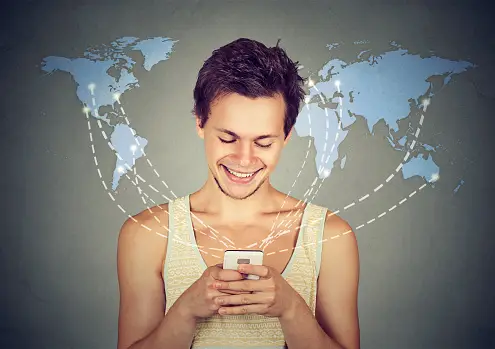How Much Does Social Media Control Our Lives?

In the digital age, social media has woven itself intricately into the fabric of our daily lives. From the moment we wake up to the time we fall asleep, platforms like Facebook, Instagram, Twitter, and TikTok dominate our screens, influencing how we communicate, shop, learn, and even perceive ourselves. But how much does social media truly control our lives?
The Pervasiveness of Social Media
The omnipresence of social media is undeniable. With billions of users worldwide, these platforms have transformed the way we connect with others. According to Statista, as of 2021, there were approximately 4.26 billion social media users globally, a number projected to grow steadily. This widespread adoption reflects not only the appeal but also the potential impact of social media on individuals and society as a whole.
Social Media’s Influence on Communication
Social media has revolutionized communication, breaking down geographical barriers and enabling real-time interactions. This instant connectivity has had both positive and negative repercussions. On the one hand, it has fostered a global community where ideas and cultures can be exchanged effortlessly. On the other hand, it has also contributed to a decline in face-to-face interactions, with many people preferring to communicate through screens rather than in person.
Chris Boure, owner of Pumex, highlights this dichotomy: “Social media has the power to connect people across the globe, but it also has the potential to isolate us from the real-world connections that are vital to our well-being.”
The Impact on Mental Health
One of the most significant areas where social media exerts its influence is mental health. The constant comparison with curated, often idealized images and lifestyles can lead to feelings of inadequacy and low self-esteem. The pressure to maintain a perfect online persona can be overwhelming, leading to anxiety and depression. Moreover, the addictive nature of social media can result in excessive screen time, which has been linked to various mental health issues.
Fascias and Soffits, a leading home improvement company, acknowledges this impact: “While social media can be a great tool for staying connected, it’s important to recognize the potential negative effects it can have on our mental health. Moderation and mindful usage are key.”
The Role of Social Media in Consumer Behavior
Social media has also transformed consumer behavior. Platforms like Instagram and Facebook have become powerful marketing tools, allowing brands to reach their target audiences with precision. Influencers, with their large followings and perceived authenticity, have become key players in shaping consumer preferences. The ease of access to information and reviews has empowered consumers, but it has also created a culture of instant gratification and impulsive buying.
Daryl Tavernor of Terraces Menswear observes: “Social media has changed the landscape of retail. Customers are more informed and have higher expectations. Brands need to be agile and responsive to stay relevant in this fast-paced environment.”
The Spread of Misinformation
The rapid dissemination of information on social media can be a double-edged sword. While it enables the quick spread of news and ideas, it also facilitates the propagation of misinformation and fake news. The algorithms that drive social media platforms often prioritize sensational content, which can skew public perception and create echo chambers where individuals are only exposed to information that reinforces their existing beliefs.
Social Media and Identity
Social media has become a space where individuals construct and curate their identities. Profiles and posts are carefully crafted to present a certain image to the world. This can lead to a fragmented sense of self, where one’s online persona differs significantly from their real-life identity. The pursuit of likes, shares, and followers can become an obsession, driving people to seek validation through virtual interactions.
Balancing Social Media Use
Given its pervasive influence, it is crucial to strike a balance in social media usage. Being mindful of the time spent on these platforms and actively engaging in offline activities can help mitigate the negative impacts. Setting boundaries, such as designated tech-free times or spaces, can also be beneficial.
Moreover, fostering digital literacy is essential. Understanding how social media algorithms work and being critical of the content consumed can empower individuals to make informed decisions about their online interactions.
Conclusion
Social media is an integral part of modern life, with far-reaching effects on communication, mental health, consumer behavior, and identity. While it offers numerous benefits, it is essential to be aware of its potential drawbacks and to use it mindfully. By finding a balance and fostering a critical approach to online content, we can harness the positive aspects of social media while minimizing its control over our lives.



